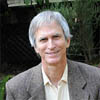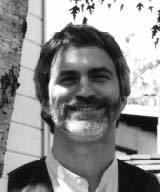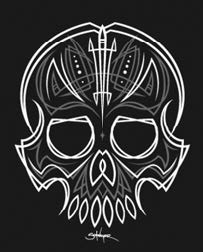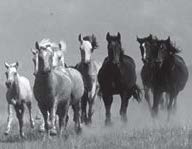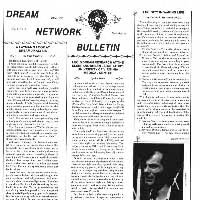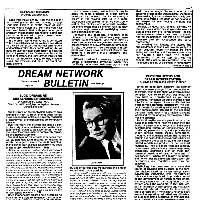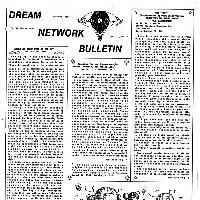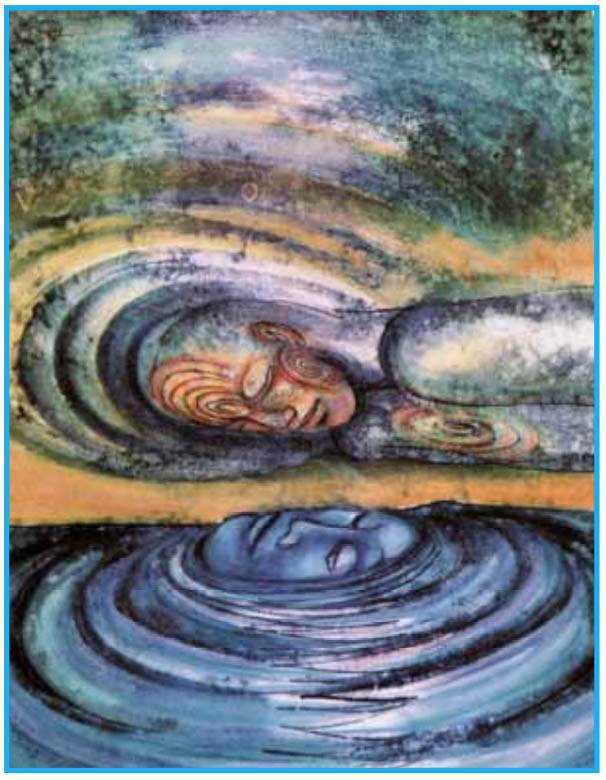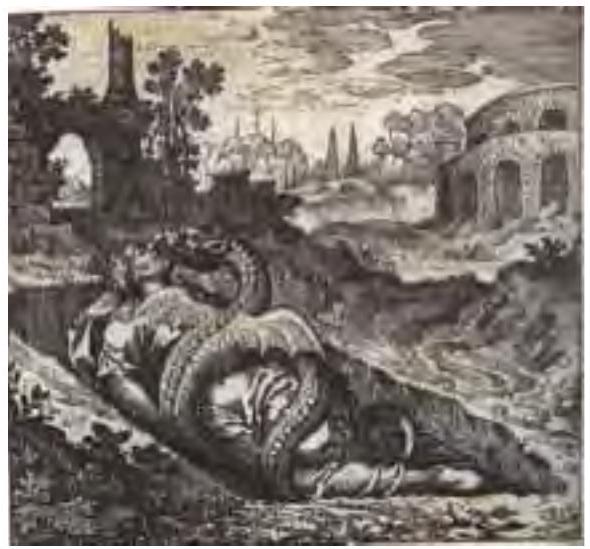
This article is the second part of a two-part series. Read Part 1 here.
The transformation of the king into a dragon or an ouroboros suggests to me that the perspective of the king or father is transcended and transformed.
For David, this implied that a dominant attitude of ego consciousness was being challenged and deposed. Sometimes this involves humbling of the ego through defeats, or revisiting our primal woundedness. The ouroboros represents coniunctio, joining the two poles of the psyche—conscious and unconscious, male and female, king and dragon, father and son. The ouroboros is portrayed as a dragon with wings, suggesting a capacity for visionary flight or transcendence through acts of the imagination—as in this highly evocative dreamwork. The coiled energy of the ouroboros suggests the gathering of immense instinctual power—power that is sealed, as life energy moves in a circular manner around the mandala of personality. It represents the intensification of inner life through encountering the unconscious itself.
David’s snake dream called forth this archetypal pattern of regeneration and emotional rebirth. In another sense, the snake was a symbol of his own libido struggling to liberate itself from the prohibitions of the father, an issue pointedly raised by the unconscious through David’s next immense and potent dream.
The Dream of the Blind Date and the Shy Weightlifter
David’s next dream took much effort to understand, and discussing its images occupied us for three full therapy sessions.
I am rollerblading by myself down a sidewalk. I come to a playground area covered with pine needles, leaves, and debris. I think, “I should bring a brush to sweep it off.” I continue, and come to a covered pavilion where kids are playing. I go in and perform a few tricks on my blades and go out. I was to meet someone on a blind date. The date was set up by my mother and this young guy who wanted his older brother to meet me. An old Cadillac, a limo or hearse, drove down the street and I realized it was carrying my date. The young guy, his brother, and my mother were in the car. Then all of us were in my house. The young man’s brother was shy and socially uncomfortable. Finally, my date comes over to engage me in conversation. He asks how close is my house to the water. I bring him to the kitchen window and say water is just behind the rocks outside my yard. At that moment a large wave crashes on the rocks and onto my house. Another wave crashes into the house. Then my father is there. I feel like I have to justify living in a house so close to the water where this would happen, like I didn’t do my research enough so the house wasn’t a good purchase. My date and I sit in the living room. His shirt is off and I notice how nicely built he is. He is a weightlifter, shy, and doesn’t know how to engage in conversation.
Roller-blading reminded David of “fun, gliding graceful, movement, being by myself, being content in myself.” Kids playing reminded David of having friends, people to play with; this evoked his sense of loneliness. Indeed, David said, loneliness was one of the feelings that often compelled him to seek sexual encounters during periods of separation from George. The playground evoked childhood memories of feeling ostracized and not fitting in with his peers. He said, “This was potentially a great place for rollerblading if it was swept up.”
I asked, “What needs to be swept away and cleaned up?”
David replied, “My hidden feelings about George’s drinking.” David was troubled by his perception that George often drank too much and sometimes embarrassed David in public. This bothered David immensely, but he had kept quiet about it because he didn’t want to upset George and was afraid George would leave him. David said, “It’s in my court to do something to clean this place up.”
“Performing a few tricks” suggested a desire to be seen or noticed; it reminded me of the natural exhibitionistic strivings of children—the way a child says, “Mommy, Daddy, look at me!” It suggested a need for mirroring and affirmation of the emergent self, which David didn’t receive from his father. Performing tricks also implied his sexual escapades, as in “turning tricks.”
Being set up on a date reminded David of anxiety, uncertainty, and a sense of obligation. That reminded David of “feeling obligated to remain silent about George’s drinking, out of fear of losing his love.”
The old limo-hearse reminded David of something eccentric, “retro,” a person trying to be cool by being bizarre. “That is how I acted in my late teens and twenties. I adopted a cool persona.” A hearse also reminded David of death. He said, “The paint on the car had faded. That reminds me of the feeling that the shine and newness of our relationship is gone; it isn’t so glossy and shiny anymore. It also reminds me of the end of youth, and growing older.” I noted the contrast between the old hearse and the earlier dream of the sporty, mint condition car, which reminded me of an inner union of youthfulness and maturity.
Waves hitting the house implied that the tide of the unconscious was rising, bringing waves of emotions. The house was a symbol of David’s personality. Water outside the house symbolized close access to the unconscious. Father’s presence in the dream reminded David of having to justify his identity, his choices, and his life to his father. Now David was able to state some core themes of his father complex: “I felt judged and criticized by my father. I was always second-guessed about my decisions and my sexual orientation, like I was on trial.” It was striking to me that purchasing a house too close to the ocean reminded David of his father berating him. Something about his closeness to the ocean of his feelings, to his feminine nature, to the unconscious itself, drew his father’s inner criticism.
I asked David about having a date with the weightlifter, which implied a need to integrate whatever this figure represented. David said, “People who are way into weightlifting I view as shallow. It’s like they are trying to cover up their flaws by having the perfect body. That’s an ideal I can’t attain.” The man’s shyness reminded David of his own social awkwardness, and feelings of unworthiness and inadequacy. The man’s shyness suggested a deflated, collapsed position. But the fact that he was a weightlifter suggested having an inflated sense of male beauty and potency, a grandiose, idealized male persona.
The weightlifter who enhances his physique reminded me of a godlike hero image, like Hercules, the archetype of male strength. To David it suggested “self-development, meeting challenges, becoming strong.” This figure has a slightly grandiose quality, as if such a man is trying to be like a superhero, like Superman. My own association to the weightlifter was that he reminded me of someone vain and self-involved who wants attention. It reminded David of how he compared himself to other men. The dream image suggested that David had a tendency toward idealization, and perhaps exhibited what Heinz Kohut called a merger-hungry self. In such a personality, there’s a longing for merger with a selfobject in the belief that proximity to an idealized figure will enhance one’s sense of self. The Weightlifter was an image of a good-enough, potent, beautiful self, in contrast to the diminished, inadequate sense of self David felt in relation to his critical, rejecting father.
The weightlifter suggested to me idealization and admiration of the perfected male form. When I asked David if that reminded him of anything, he replied, “I used to try to be very masculine so I wouldn’t be seen as gay. I tried to be a mainstream male. I didn’t want my masculinity called into question. I became a carpenter and drove a truck so my sexuality wouldn’t be dismissed.”
I said, “I think the dream is about your life path, your personal truth. It contains an image of an inner marriage; and your partner in the divine marriage is a man like you. It suggests that you are seeking self-love, through loving someone who matches your masculine ideal. Here your image of the Beloved is a strong but sensitive man, the shy weightlifter. Your date with a man who is shy like yourself implies the need to develop self-love, the self-love you couldn’t learn from your father because he couldn’t validate you.”
The theme of seeking union with someone like himself reminded me of the theme of the union of similars, which was sometimes mentioned in alchemy. As Howard Teich put it, “Jungian perspectives on men’s relationships usually revolve around Jung’s contrasexual archetype of the feminine, or anima. But the male-male union emerges as a critical step in all men’s individuation process—and as the final step for some.”
It occurred to me that David’s dream, with his mother and father both present, presented an image of his oedipal situation. In the dream, mother orchestrates the date, which suggested an unconscious merger or identification with his mother. When I asked David what came to mind about mother orchestrating the date, he said, “I was her favorite. I felt I had to take care of her. One day when I was five years old I found her very sad. She was singing, ‘You are my sunshine, my only sunshine.’ I realized she had a lot of sorrow, and I felt I truly was her only sunshine.”
“You felt you had to take care of her and make her happy. How did you do that?”
“By being cheerful, good, polite, not causing problems, being a good boy.” I pointed out that this was exactly how David was acting now, regarding George’s drinking; he was remaining silent, trying to be a good, compliant partner.
I said, “In the dream, your mother is able to affirm who you are. In a sense, mother is ‘giving away the bride.’ Perhaps this represents her acceptance of you.” The dream seemed to affirm a positive inner connection with the mother.
I sought consultation on this dream from Robert Hopcke, author of Jung, Jungians, and Homosexuality, who analyzed this as follows: “Because gay men are attracted to men, a characteristic they share with heterosexual women like their own mothers, many gay men feel close to the archetypal feminine aspects of their own experience. Here the mother is ushering David into the realm of intimacy. It is as if, in the dream, mother is bringing him into relationship with the father. David had a bad experience with his father and became wary of intimacy with him. The weightlifter symbolizes the narcissistic masculine ideal that he seeks. He sees himself as inadequate, while the weightlifter is the good-enough, beautiful, empowered male self he seeks. The weightlifter’s shyness, and David’s own shyness, reflect the fact that he hasn’t been affirmed by the father, so that he feels his masculinity is wounded. As a result, he holds men at a distance. Instead of moving in with George, David has maintained a long-distance relationship, expressing an underlying ambivalence around intimacy. Avoiding true intimacy with his lover and continuing to have compulsive, anonymous sex has been a way of continuing to project the ideal outward. David has been identified with the inadequate self and projecting the idealized, good-enough self onto beautiful strangers.”
The Dream of the Domesticated Horse
Exploring these dreams brought forth a prodigious amount of material to be explored in therapy. Months of sessions passed. David and George went to couple’s therapy where David confronted George about his drinking, saying this was one reason he’d been ambivalent about living together. They made progress in communicating about a number of other important issues and eventually made plans to live together. The week that George moved in, David had this dream:
I’m with a horse. I lead him down a corridor near stalls and onto a long, open path. His lead rope wasn’t attached to the halter, so he wasn’t completely under my control. Later, another horse with rider came up the path.
David’s association to the dream was that this was a domesticated, tame horse, and that he, too, was becoming domesticated. This was a familiar horse, a friend, not a wild horse. It represented his becoming more open, honest, and intimate with George. I said, “The horse isn’t running wild anymore. You and George are domestic partners now.”
David said, “In the dream, I’m riding on a long path. Maybe the relationship is the long path. It has been a longer road together than I expected.” The fact that the horse in the dream wasn’t completely under his control reminded David of fear of losing his freedom now that he was making a commitment to George. Yet he seemed to be in harmony with the horse, which wasn’t totally out of control, as in earlier dreams. He realized that the horse might cooperate of its own accord, without coercion. This insight provided the basis for further conversations about monogamy and fidelity.
Several more months passed and David again assessed what was happening as a result of ongoing therapy. He said, “I think I’ve accomplished a tremendous amount here, especially identifying the wounding with my father and realizing that there’s nothing fundamentally wrong with me. I don’t feel so lonely anymore. My relationship with George is in a renewed place. I’m speaking the truth authentically. I feel more like a man now. I used to feel like a child in a man’s body. I feel like I’ve grown into myself, and filled out my body. I belong to myself.”
The Dream of the Buffalo Hide
David persisted with therapy, and several months later he reported this dream:
I picked up an animal hide that I put on as a jacket. It was fresh and there was blood on the hide. Then I saw a buffalo on a range. It was a large animal with a huge back and shoulders.
A buffalo reminded David of independence, freedom, strength and selfsufficiency, being part of a herd, having a sense of community. “This raises the question of where in my life can I feel this connection, where I’m part of something.”
“That would be an antidote to the loneliness you often feel.”
“Buffaloes flock together. But they also tend to stand by themselves. They remind me of solitude in togetherness, and how I live my life, in a herd but separate.” He noted that buffaloes are migratory creatures; they roam the plains. Roaming reminded David of “migration, seasonal movement, finding nourishment and satisfaction of needs.” “Your basic needs are being satisfied— in your work and career, and in your relationship with George.”
The buffalo’s huge back and shoulders reminded David of “power and strength, where I am now. I have power and strength and community.” “In many cultures, slaying an animal is a symbolic mark of manhood and coming of age. Wearing an animal’s hide suggests male initiation, conquest, bravery, mastery. It is a mark of initiation, manhood, and passing through ordeals.”
David said, “This morning when I got up I said to myself, ‘Today I feel like I know what it feels like to be a man.’ At age forty-nine, I’m in solid middle age. I feel like I have gone through an initiation.”
“You’ve faced down your father and gotten full-on married to George. That’s the initiation. You’ve claimed your life and chosen your partner. You’ve gone through a rite of passage into manhood.”
“I feel integrated and whole.”
“The buffalo is a symbol of your power, claiming the relationship you want without shame or fear of disappointing your parents.”
Then I revealed to David a significant fact: several months earlier I myself had a dream that I was wearing an animal skin. I had recently explored this symbolism and had discovered that the Greek God Dionysus was said to appear wearing an animal skin. I said, “Dionysus represents freedom, being uninhibited, liberating one’s ecstatic life energy. Dionysus is the god of libido, not the god of silent reflection (Apollo). He’s the god of ecstasy, drunken inebriation, overcoming inhibition and embarrassment, joining in the feast and dance of life.” David said, “That’s so funny. This weekend was Halloween. We went out to a party and wore costumes and I was incredibly uninhibited and dancing. Everyone said we were the life of the party. Someone said, ‘Who let David out of his cage?!’”
The fresh blood on the hide suggested the alchemical stage known as rubedo, the reddening, a stage in which we’re enlivened by desire, through free movement of our libido, feeling a sense of unimpeded vitality. Red denotes passion, lust for life. In animistic religions, blood was sacred, numinous, full of mana. This dream evoked the experience and symbolism of initiation rites. In tribal cultures a youth proves his manhood through killing an animal and donning its hide, becoming one with the animal and assuming its power.
“The dream is telling you that you are involved in a process of coming of age. You’ve received the mantle of power. You are in the state of a warrior. You’ve arrived. Wearing this animal hide is a mark of maturity. You possess its mana (life energy), and its power.” David said, “This is the nature of my beast.”
David’s inner work continued. Working with dreams helped David access charged feelings and memories, deepened our therapeutic alliance, and allowed him to fully embrace a nurturing relationship with George. The wisdom of the wild and domesticated horses, the austere camel, man and snake locked in their eternal embrace, the stealthy alligator, and the proud buffalo—each of these archetypal patterns of transformation influenced David’s development in ways he and I never could have anticipated, contributing to tangible therapeutic gains and positive personal evolution.
Epilogue
While working with David, I was inspired by these words from Jung’s Commentary on The Secret of the Golden Flower:
“Here and there it happened in my practice that a patient grew beyond himself because of unknown potentialities, and this became an experience of prime importance to me. When I examined the way of development of those persons who quietly and, as if unconsciously, grew beyond themselves, I saw that their fates had something in common. The new thing came to them out of obscure possibilities either outside or inside themselves; they accepted it and developed further by means of it. In no case was it conjured into existence through purpose and conscious willing, but rather seemed to be borne on the stream of time. What did these people do in order to achieve the development that liberated them? As far as I could see they did nothing (wu wei) but let things happen. As Master Lutsu teaches in our text, the light rotates according to its own law, if one does not give up one's ordinary occupation. The art of letting things happen, action through non-action, letting go of oneself, became for me the key opening the door to the way. We must be able to let things happen in the psyche.”
The Hui Ming Ching is introduced with the verse:
If thou wouldst complete the diamond body with no outflowing, Diligently heat the roots of consciousness and life. Kindle light in the blessed country ever close at hand, And there hidden, let thy true self always dwell.
These verses contain a sort of alchemistic instruction, a method or way of creating the ‘diamond body’ which is also meant in our text. ‘Heating’ is necessary; that is, there must be an intensification of consciousness in order that the dwelling place of the spirit may be illumined. But not only consciousness, life itself must be intensified. The union of these two produces ‘conscious life.”’
Every interpretation of the dreams described here was intended to further this heating and intensification of conscious life. I tried to let things happen, seeing where the unconscious leads. I did not try to change David, yet he changed, exemplifying how “the light rotates according to its own law.” ℘
References
M. L. von Franz, Shadow and Evil in Fairytales (Dallas: Spring, 1980), pp. 119-20.
E. Edinger, The Mystery of the Coniunctio (Toronto: Inner City Books, 1994), p. 18.
E. Edinger, The Mystery of the Coniunctio (Toronto: Inner City Books, 1994).
Illustration from M. Maier, Atalanta Fugiens, Oppenheim, 1618, reproduced from A. Roob, The Hermetic Museum: Alchemy and Mysticism (Koln, Germany: Taschen, 2001), p. 418.
A. Roob, Alchemy and Mysticism: The Hermetic Museum (New York: Taschen, 2001), p. 403. Source: A. Roob, The Hermetic Museum, p. 421.
E. Edinger, Anatomy of the Psyche (La Salle, IL: Open Court, 1985), p. 148. See Epilogue to this paper.
K. Kohut and E. S. Wolf, “Disorders of the Self and Their Treatment, “International Journal of Psychoanalysis, 59 (1978): 413-25.
Teich, “Homovision: The Solar/Lunar Twin-Ego, “in R. Hopcke, K. Carrington, and S. Wirth (Eds.), Same Sex Love and the Path to Wholeness (Boston: Shambhala, 1993), p. 137.
R. Hopcke, Jung, Jungians, and Homosexuality (Boston: Shambhala, 1989).
Robert Hopcke, personal communication.
C. G. Jung, Commentary on The Secret of the Golden Flower: A Chinese Book of Life (translated by C. F. Baynes) (New York: Harcourt Brace Jovanovich, 1931/1962). (pp. 91-2, 93-5, 98).

